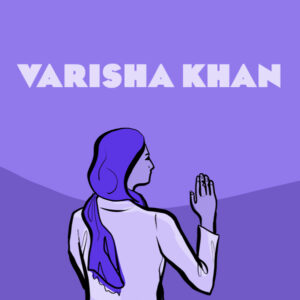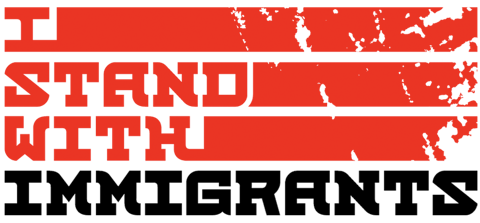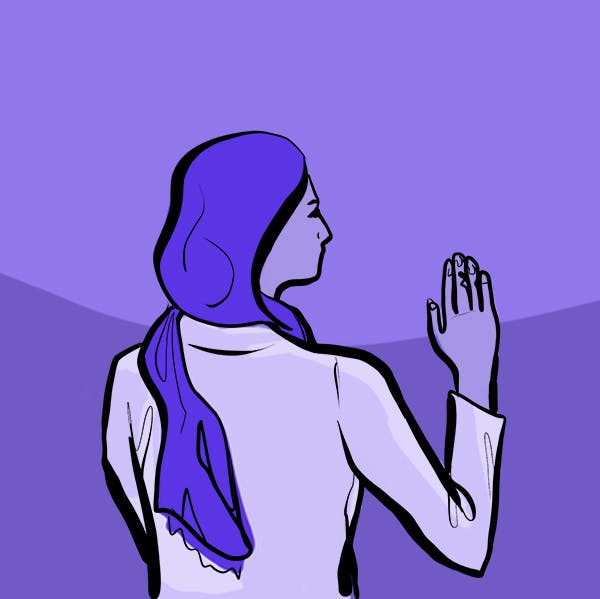Varisha Khan
Immigrant experiences differ with every person. Some flee, some fly, some are born here. Varisha Khan is Redmond City, Washington’s first Muslim council member and, while she was born in Dallas, she has carried her Pakistani roots and pride her whole life. Through racism and Islamophobia, she chose to pursue a career that allowed her voice to carry and her actions to directly ignite change against the systemic issues in her community. After running against a twelve-year incumbent, she won the race by 66 votes, leading to a recount.
“What it took [to win was] for me to have a campaign that was ten times the size of his, a budget that was three times the size of his, fundraising three times more than he did, and turning out hundreds of volunteers from our community to show up and help […] Sometimes you have to work five times as hard to just get half of one percent more than a white person.”
 At just 25 years old, Varisha has taken care of the Redmond community, not just for the past seven months since being elected into office, but since she was seven years old, attending school there, going to mosque there, and now, living with her husband. “It truly is a community that is welcome to people that look like me.”
At just 25 years old, Varisha has taken care of the Redmond community, not just for the past seven months since being elected into office, but since she was seven years old, attending school there, going to mosque there, and now, living with her husband. “It truly is a community that is welcome to people that look like me.”
The experience of an immigrant and of a child of an immigrant align closely; many families assimilate while other homes are essentially their homeland. In Texas, Varisha had a diverse neighborhood, with Arabs, Muslims, Latinx, and Black folks all on the same cul-de-sac. However, a growing Islamophobia and racism was seeping across the country after the attacks on 9/11.
“I remember sitting and watching TV with both of my parents and my mom said something that rang true, ‘nothing is going to be the same ever again.’” While that statement holds, so do her and her family’s values that have paved the path for success, empathy, and knowledge. Even with the racial profiling and surveillance they endured, her father continued working as a software engineer at Microsoft while her mother proudly takes care of the house and Varisha’s sisters.
“Growing up, my parents have always been informed about the political world around them. It’s in both of their natures to keep up with current affairs, watch the news, read the newspaper, and to talk about what’s happening in the world and how it relates to us and how it affects us […] My parents were always open to learning and having those tough conversations and sometimes disagreeing and having to grapple with the discomfort of undoing our own internal racism. They always encouraged me to pursue politics [so I can] undo racism by challenging the institutions that perpetuate it, like media, like politics, like government.”
With the push from her parents to value and pursue a high level of education and give back to society, Varisha attended a youth leadership program with the Council on American Islamic Relations (CARE). “That was a program that honestly gave me a complete sense of what my career can start to look like. We got to go and meet elected officials, go to media offices, radio stations, TV stations. We met with lawyers and other executives.”
It was through CARE that she met one of her mentors, Michelle Storms, who, at the time, was the assistant Dean of the University of Washington Law School. “She ended up helping me and guiding me and encouraging me in my path and she’s still my mentor to this day.” Now the Executive Director of the American Civil Liberties Union (ACLU) in Washington, Storms advocates for civil rights and liberties for her state.
With the Black Lives Matter protests, she recently said in an interview with NPR, “As a person who is a Black person, I have so many emotions. I feel a lot of pain and grief over the loss of Black life and the lack of police accountability. So, I feel pride in the protest, but I also feel strongly a desire to have something new happen with regard to communities and policing.”
Varisha is now one of those people who has the direct power to make change happen. “As a city, we’ve heard nothing but a strong need for defunding [the police] and as our elected leadership sits right now, the majority of us do want to take that step and are looking into the possibilities of what that will entail, where those cuts start to come from, where the policies need to be changed. But the desire, the willpower to do so is absolutely there. While I bring probably the most progressive view on council and I’m probably the most outspoken, I’m definitely not alone.” She finds her new role “empowering as much as it is terrifying and difficult,” and since taking office, she is responsible for handling the response to a pandemic, the public health crisis of racism her county officially declared, growing recession and unemployment, and economic disparity throughout the community. With COVID-19’s first deaths in the United States hitting Kirkland, the city next door to Redmond, that area has seen a non-stop barrage of pain and injustices, much like other parts of the country, with immigrants being one of the most affected groups.
“It’s often the immigrants voices that are left out, young immigrants, families — it’s the elders who are left out of the conversation and consideration.” This is why Varisha urges those who are in need to reach out and speak up. Now on the other side of the advocacy table, she knows the decision-makers want to hear from us and need to. Whether it be rental assistance, emergency services, food assistance, or making sure that you’re protected in your immigration status, people are there to help.
Varisha understands that immigrants and children of immigrants face the brunt of American policies; that while she calls Redmond home, she has seen violence against her people. “I’ll always be seen as different and an outsider, in the U.S. and in Pakistan. I walk around [Pakistan] and people know immediately that I’m American, even before I opened my mouth.” And then within her own community at home, she has and does face injustices for the hijab she wears. Regardless of people’s need to spew hate and act violently, she cherishes her mosque experience for the friends it gave, the community outreach opportunities it provided, and the bonds she made. Without her mosques, she would not be where she is today.
“A huge factor in pushing me to understand and work to undo the kind of systemic racism and Islamophobia in this country also comes from the fact that three out of the four mosques that I have attended growing up have faced a hate crime. My childhood mosque in Dallas was attacked, my childhood mosque in Bellevue, where I used to go to youth groups was burned down to the ground twice. It no longer exists. And then my mosque that I attended at the University of Washington was attacked while I was there, where a man threw a brick through the window while I was with other university students leading a tour for a local school.”
One of the university students called the police after the mosque was attacked. Students and visitors stayed for two hours waiting for the police that never showed. “There wasn’t even this sense of protection or anything, or even help for that individual [who threw the brick] if he was experiencing a crisis of his own.” The school children were initially there to learn about social justice and Islam. This real world experience of targeting Muslims may inspire one of these students the way it has Varisha. It may affect one enough to create safe spaces for their fellow Muslims. It may change their life forever. “It resulted in a lot of us feeling like we have to rise up to more positions of leadership to call the shots and make that change ourselves because we can’t really sit around and wait for other people to do it.”
Varisha’s need to fight for justice extends beyond a job, it is her life. By uplifting communities of color and marginalized communities, we are making a better United States. “Immigrants have the best lived experience and understanding of how to change and undo a lot of the history and the historic suppression of immigrant voices and anti-immigration policies. The solutions come from within us. The answers are within us. We not only contribute to this country economically and socially through our education, but we have the potential to really make this country the type of inclusive country that it wants to be.”
#CELEBRATE IMMIGRANTS
We all know someone with an immigration experience or have an immigrant heritage story of our own. Join us in sharing your story for a chance to be featured on our official channels!


